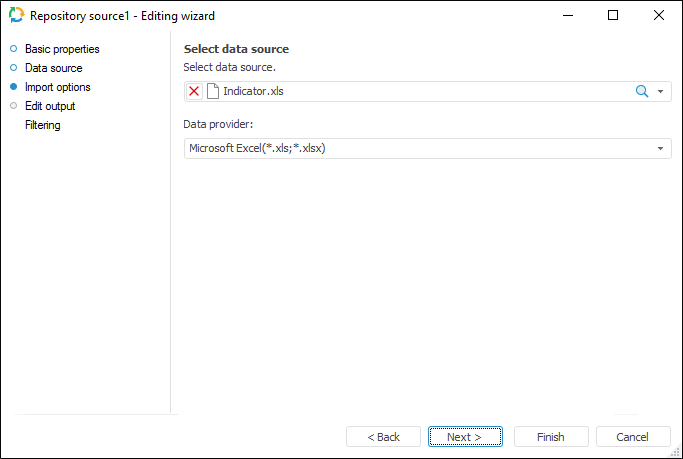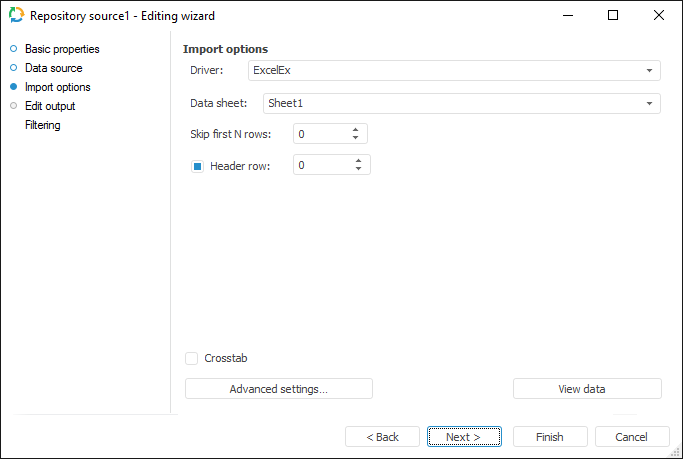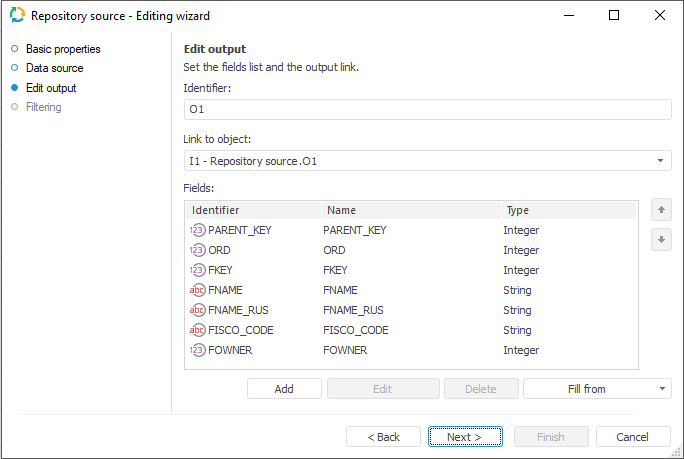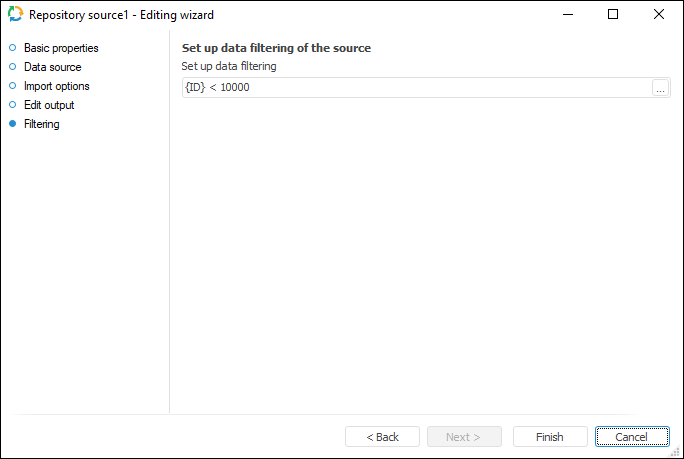
The Repository connector is an object that is used to get data from objects of the current repository.
After adding the connector to the ETL task workspace set basic properties, data source in repository, import options. The connector output can also be edited and data filtering options can be set.
In basic properties object name, identifier and comment are set.
The Data Source page is used to specify repository object from which data is imported.

The following objects can be selected to be used as a provider:
Table MDM dictionary, composite table MDM dictionary
Data sets (table, external table, view, query, ODBC data source).
Log.
In Foresight Analytics Platform, the Settings button is available for table, logs and other basic objects, that enables the user to determine advanced settings used on data identification.
For the Document objects, to which external files with data will be loaded (for example, Microsoft Excel file), the Import Options additional page will be available instead of the Options button.
The Import Options page enables the user to specify parameters used to determine data range.
This page is displayed if the Document repository object with file loaded to it is selected as data source.

Settings depend on the data provider type and are similar to import from external data provider of the same format.
The Settings button enables the user to determine advanced settings used on identifying data.
The View Data button shows data selected by a query.
NOTE. Only the first hundred of the provider lines will be displayed during the data preview.
To set a list of fields and output link, use the Output Edit page.

The following settings are available on the page:
The Set Up Data Filtering of the Source page is used to specify the condition, by which imported data is selected:

NOTE. The page is not displayed for copying data object if a standard cube is selected as a data provider.
To apply filtering condition, click the ![]() button. The following dialog box opens expression editor. All provider fields can be used to create an expression. The data that satisfies the specified condition is imported.
button. The following dialog box opens expression editor. All provider fields can be used to create an expression. The data that satisfies the specified condition is imported.
See also: